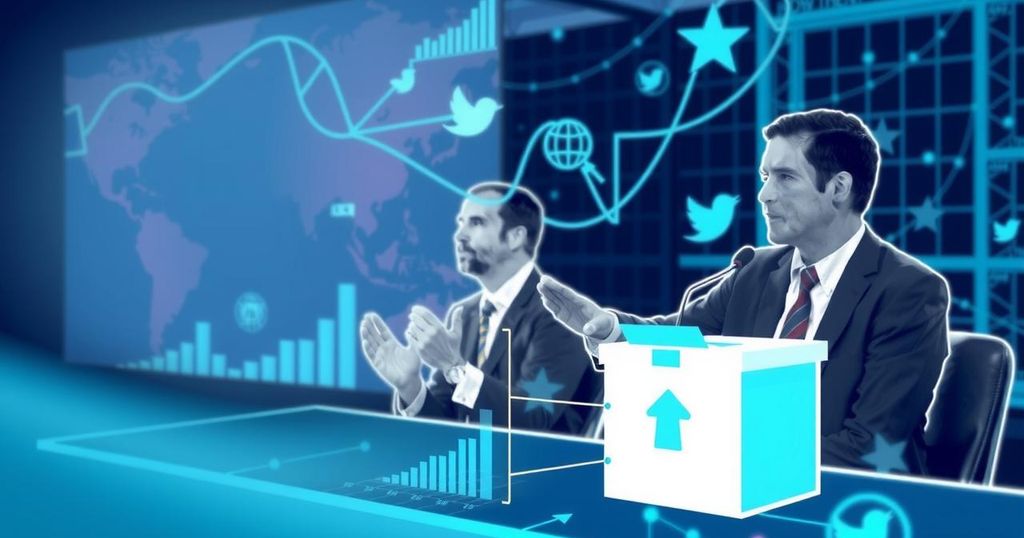Election Integrity in the Digital Age: Insights from IGF 2024

At IGF 2024, experts discussed critical issues regarding election integrity in the face of misinformation, disinformation, and new technologies like AI and deepfakes. They highlighted the urgent need for collaboration among various sectors to combat these threats, particularly focusing on the disparity faced by the Global South in access to reliable information. Panelists from organizations such as UNESCO and Meta emphasized that safeguarding democracy requires global partnership and accountability in the digital realm.
During the Internet Governance Forum (IGF) 2024, a panel of experts led an important conversation regarding the integrity of elections in the digital landscape. With over 65 elections scheduled globally this year, the symposium underscored significant threats posed by misinformation, disinformation, and emerging technologies such as artificial intelligence and deepfakes. Experts from various sectors stressed the urgent need for collaborative solutions to maintain trust in democratic processes amidst rising challenges in the digital realm.
Tawfik Jelassi from UNESCO highlighted the alarming growth of disinformation, asserting that it poses a fundamental risk to democracy. He stated, “Without facts, there is no trust, and without trust, democracy falters.” This sentiment was echoed by William Bird and Lina Viltrakiene, who noted how malefactors exploit digital platforms to manipulate voters, enhancing the prevalence of deceptive narratives through deepfakes and coordinated disinformation campaigns.
The forum also addressed the issue of digital inequality, particularly in the Global South. Elizabeth Orembo from ICT Africa pointed out that limited media access exacerbates vulnerabilities to disinformation. She remarked, “We cannot apply blanket policies from tech companies without addressing regional contexts,” emphasizing the necessity for localized strategies that consider cultural and infrastructural disparities.
Moreover, representatives from major tech firms, like Sezen Yesil of Meta, discussed efforts to mitigate election risks, including stronger regulations on fake accounts and increased transparency in political advertisements. Panellists expressed the need for improved accountability measures for technology companies and proposed encouraging frameworks like the EU’s Digital Services Act to combat digital misinformation.
The paramountcy of multistakeholder engagement was reiterated throughout the session. Rosemary Sinclair of Australia’s AUDA articulated that preserving democracy is a “global team sport,” necessitating collaboration among governments, civil society, academia, and technical experts. Attendees stressed that the pursuit of election integrity must transcend electoral timelines, with ongoing efforts needed to fortify trust, address digital disparities, and safeguard democratic values in an increasingly digital world. The IGF’s role as a collaborative platform for global dialogue was reaffirmed, with intentions to fortify its impact in crafting future governance solutions.
The Internet Governance Forum (IGF) serves as a crucial platform for addressing issues relating to internet governance, including those impacting electoral integrity. In 2024, pervasive challenges such as misinformation, disinformation, and the misuse of algorithms and artificial intelligence threaten democratic processes globally. With an unprecedented number of elections taking place, safeguarding electoral trust has emerged as vital as misinformation spreads faster than verified information, amplifying existing technological disparities and eroding democratic principles.
In conclusion, the insights from the IGF 2024 underscore the pressing need to address the multifaceted challenges threatening election integrity in the digital age. As misinformation and digital divides continue to undermine trust in democratic processes, collaborative efforts among various stakeholders are essential. The discussions highlighted both the urgency and the imperative for tailored solutions that promote equitable access while enforcing accountability measures for technology companies. The IGF’s continuous role in fostering global cooperation remains critical in protecting democracy.
Original Source: dig.watch








